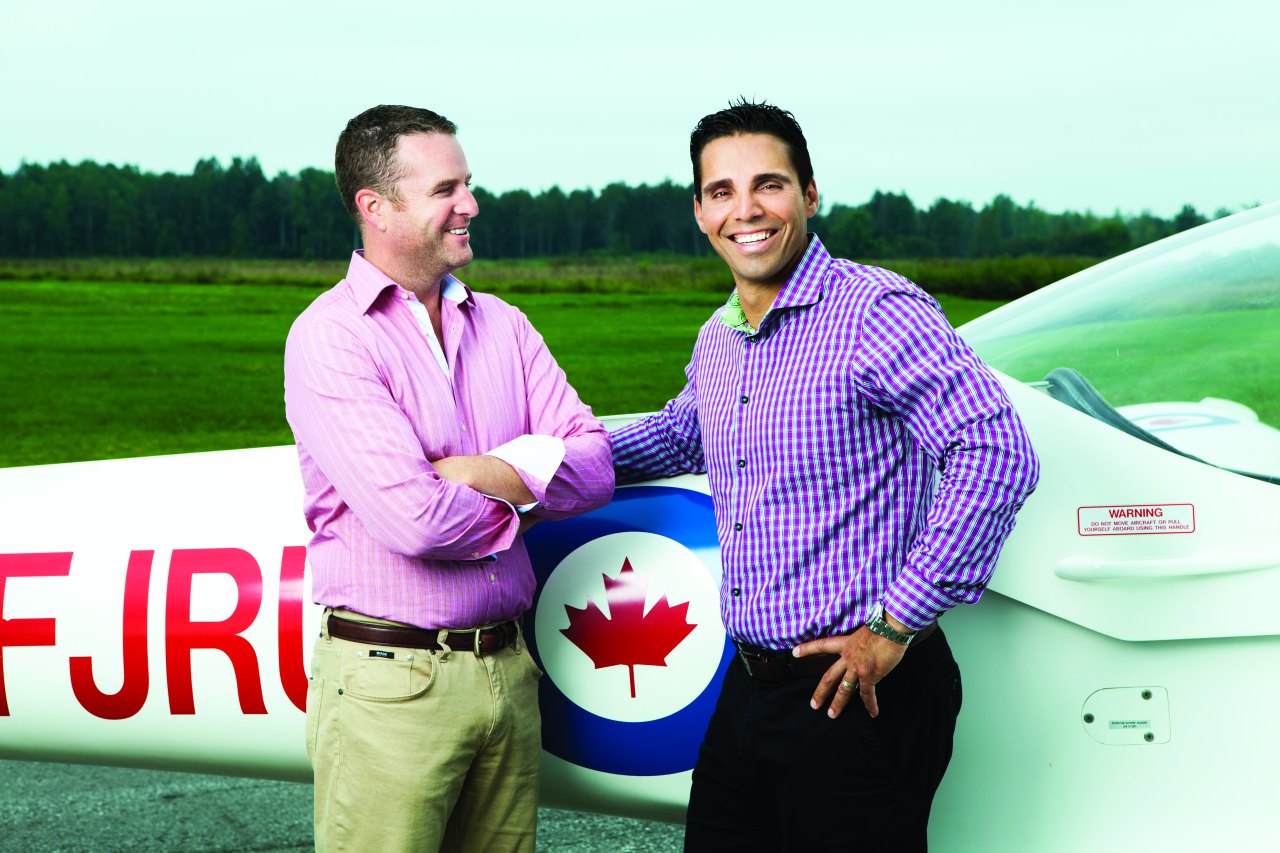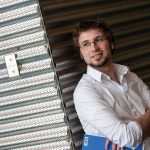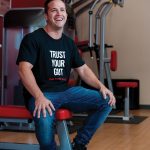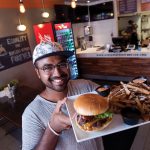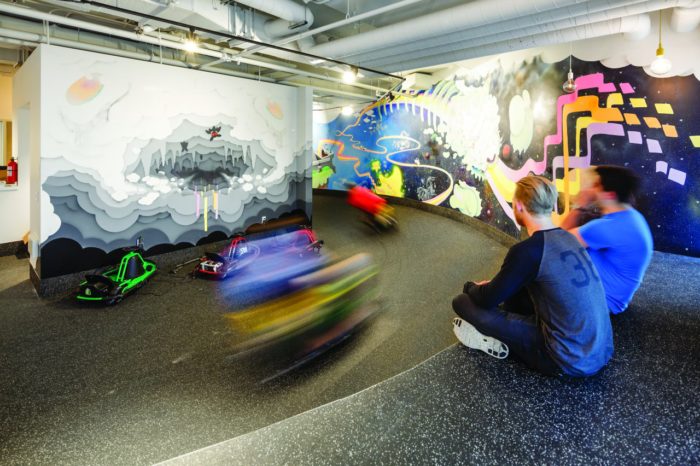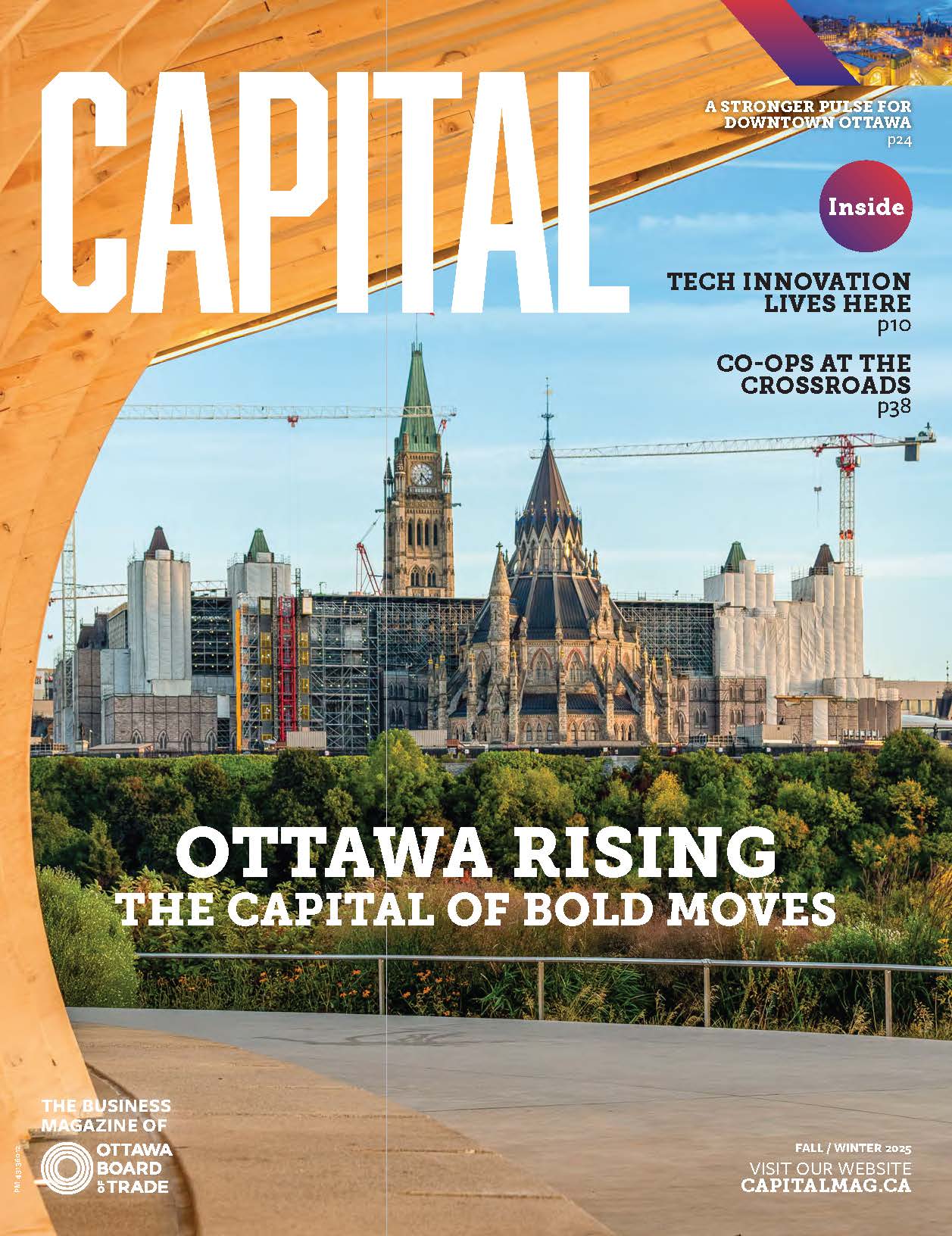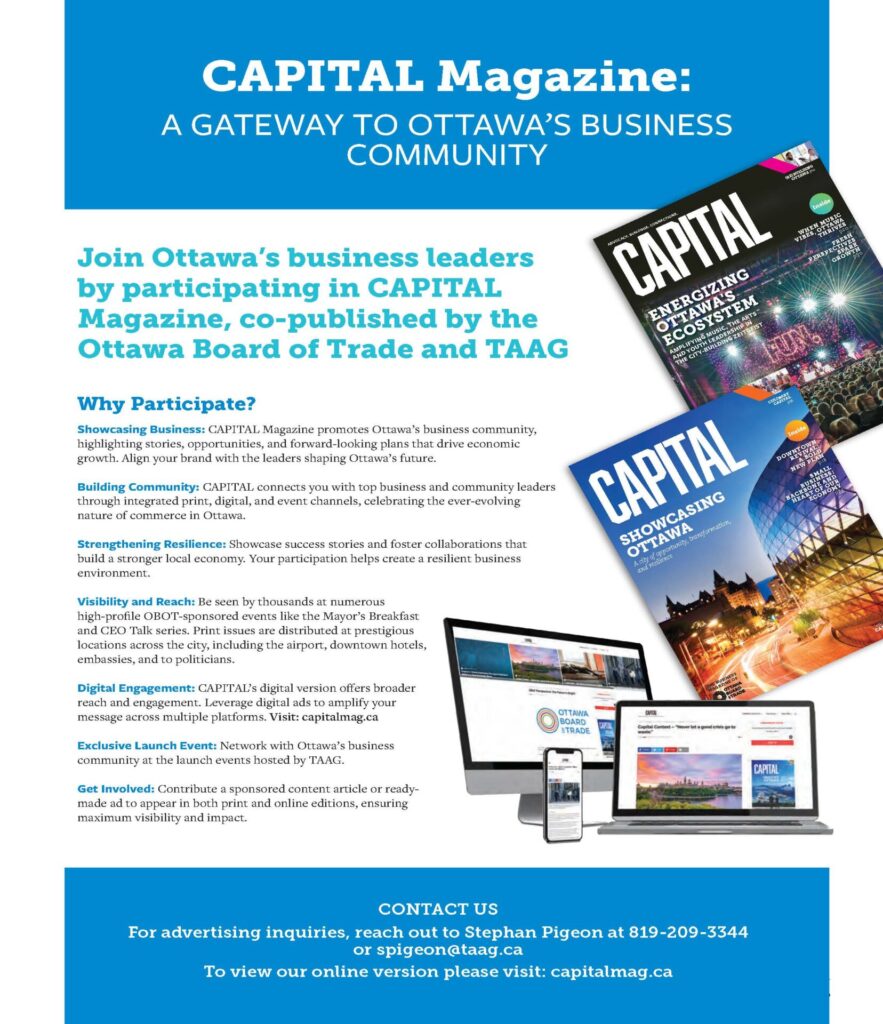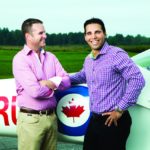Starting Up in Ottawa: Untapped
Ottawa market excites homegrown entrepreneurs
By Tamara Micner
Jamil Bhuya, Moodie Cheikh, Frank Bouchard and Jean-Luc Boissonneault are all Ottawa natives who founded companies in Ottawa because they find it an exciting place to innovate.
Bhuya, co-owner of the casual restaurant Burgers & Fries Forever (BFF), sees Ottawa as “an untapped market” for innovation. Emphasizing fresh, local ingredients, BFF takes inspiration from eateries in Amsterdam, Bangkok, Berlin, Miami and Montreal. The menu accounts for dietary restrictions including celiac and halal, reflecting Bhuya’s multi-cultural upbringing.
“We get this bad rap for being a government town, and that’s changing.”
Bhuya is excited to see Toronto restaurants, such as Sansotei Ramen (which opened on Bank Street in May), recognizing what Ottawa has to offer. “They also see what I’m seeing—it’s a big market here and people want change,” he said. “We get this bad rap for being a government town, and that’s changing.” He founded BFF as a career switch, after his government co-op positions led to casual jobs during the 2012 hiring freeze, rather than a “bridged-in” position.
Cheikh co-founded Searidge Technologies, a Deloitte “Companies to Watch” winner that provides technology to airports and air traffic control organizations to manage and monitor runway, taxiway and gate-area traffic. He sees growing momentum and respect for entrepreneurs in Ottawa since the downturn of the 2000s.
“I go to some start-up events and look at some of the entrepreneurs sitting around the table, and so many of them are coming out of high school or started something through university and just graduated, and it’s amazing,” he said.
An engineer by trade, Bouchard co-founded Wipebook—a reusable, portable whiteboard notebook with a growing following—at the University of Ottawa. Wipebook emerged in a tech entrepreneurship course, where he turned his ragtag reusable notebook—made from overhead transparencies taped together—into the prototype that has earned the company more than $500,000 on Kickstarter, an appearance on Dragon’s Den and now partnerships with Staples, Costco and Walmart in Canada (with potential U.S. partnerships in the works).
“I don’t think we could have started Wipebook had we not had the opportunity at the University of Ottawa to validate the concept,” he said. “Once you’ve hit that customer base where you’re like, we’re solving this need, there’s all these resources to develop that company in Ottawa.”
Boissonneault, CEO of Free Form Fitness, says that access to “fantastic” mentors is one resource that sets Ottawa apart. “In terms of the business community, I find all you have to do is send them an email, give them a phone call, go see them in person,” he said. “I think that comes with a smaller community, whereas if it was bigger, I think it’d be much harder to get to those people.”
Bhuya agrees that Ottawa’s tech community is accessible to entrepreneurs who take initiative. “There’s a lot of opportunity, a lot of help and a lot of people doing similar things in Ottawa,” he said. “All you need to do is ask.”
But Bhuya and Bouchard believe the tech scene favours software companies, making resources like investment less accessible to other entrepreneurs.
“There’s a lot of support for SaaS, but when it comes to physical goods, shipping and manufacturing, it’s a little harder to find those resources,” Bouchard said. But being part of Invest Ottawa’s group for physical-goods companies has been a helpful way to share ideas, he said.
For Bhuya, getting investment as a retail company has been difficult—leading BFF to consider launching a Kickstarter campaign to help them open a second location. “It’s not easy for us to get traditional financing through banks,” he said. Indeed, restaurants are typically considered high-risk ventures by lenders, a problem that’s exacerbated
if you don’t have a track record in the industry.
Boissonneault also struggled when starting Free Form Fitness with his future wife, Chelsea. After potential investors backed out, they got a bank loan that was co-signed by his future mother-in-law. Ten years later, the company has four personal-training gyms and a franchising system, aiming to open in every major city, the Free Form Academy to train personal trainers in nutrition, exercise, psychology and business, and custom-built software, qFit, that quantifies and tracks clients’ progress and every aspect of the business.
Things are also looking up for Searidge, which is doing business in 20 countries and may open a second office in Dubai.
For Bhuya, Shopify’s success has been inspiring, putting Ottawa’s tech scene on the map. “It really shows you that there’s a world of possibility out there, if you’re eager enough to learn and believe in yourself.”
